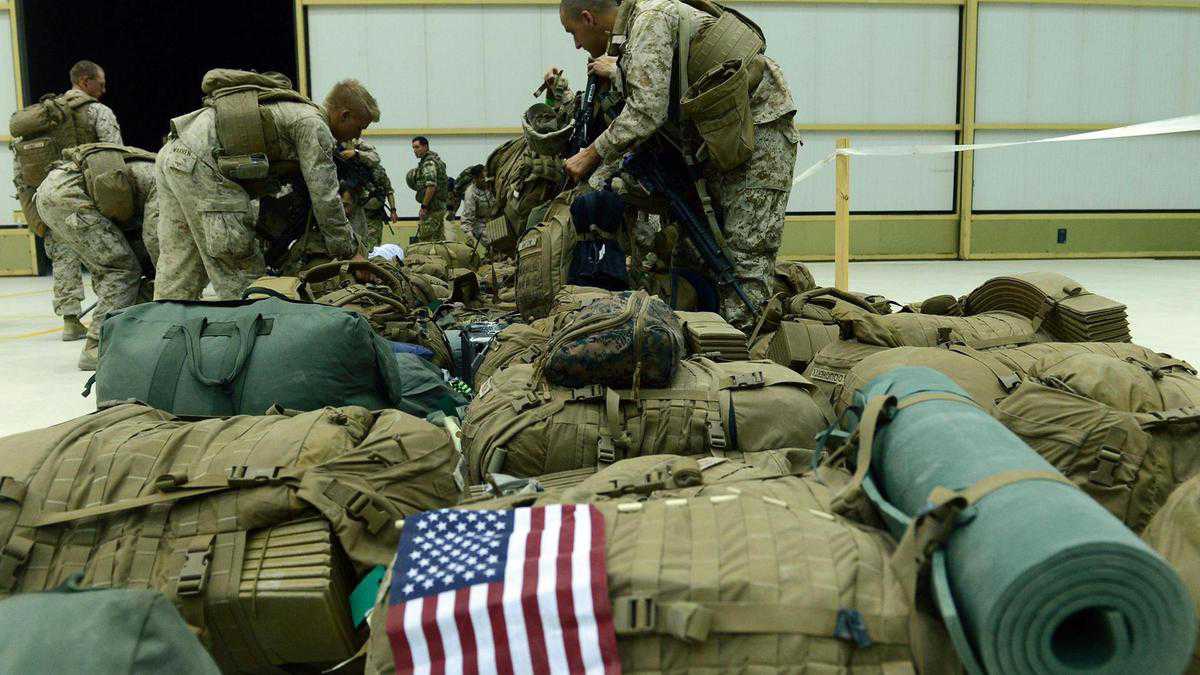Afghanistan Study Group pushes back against May deadline for US troop exit
04 February, 2021

The congressionally mandated Afghanistan Research Group has warned against keeping to the May deadline for a US troop withdrawal from Afghanistan - part of an agreement reached in Qatar last year - unless the Taliban starts to surpass its end of the discount.
The analysis group, hosted at the United States Institute of Peace, issued a number of five recommendations within the final report it released Wednesday, like the have to “reinforce the conditionality of your final US troop withdrawal.” Congress commissioned the analysis group in December 2019.
“We assume that US withdrawal will provide terrorists with an opportunity to reconstitute,” explained Gen Joseph Dunford, the former chairman of the joint chiefs of personnel and a co-chair of the Afghanistan Analysis Group. “Inside our judgment, that reconstitution will take place within about 18 to thirty six months.”
“The Afghan forces are highly reliant on US funding and operational support and can continue to be for quite a while to come,” he added.
The Trump administration signed a cope with the Taliban in Qatar this past year that paved the way for negotiations aimed at withdrawing US troops and establishing a peace process in the united states. Ex - president Donald Trump lowered US troops from 4,500 to 2,500 soon after burning off the election to President Joe Biden in November.
Those 2,500 troops are set to leave in May beneath the Doha agreement. In addition to the American forces, there happen to be about 11,000 Nato troops still in Afghanistan.
Still, the original agreement and a time of follow-up talks have not led to a reduction in violence. Pentagon spokesman John Kirby explained previous month that the Taliban has got failed to surpass its end of the arrangement, which necessitates it to minimize ties with Al Qaeda and end terrorist episodes.
And a conditions-based withdrawal, the article as well suggests clarifying that the Taliban must reduce violence against the Afghan persons. It also said that the US should leverage the chance of lifting UN sanctions against the Taliban and include the Kabul-based government in the military-to-armed service channel with the group.
“The ambiguity of the Doha agreement might have been helpful in initiating dialogue, nonetheless it has verified increasingly problematic as the procedure has moved forward and really should be removed,” the study group’s report states.
Still, the study group’s co-chairs did credit rating the Doha arrangement with presenting a new possibility to end the two-decade very long war, the longest-functioning conflict in American history.
“The opportunity that we possess now as a new administration comes in with an agreement established in February 2020 is to build on the foundation of this agreement,” said Gen Dunford. “We’re certainly not suggesting that people walk away from the work that is done since February 2020.
“We’re suggesting that we now consider it clear-eyed, build upon that function, provide clarity where there may be some understandable ambiguity found in the early days and nights of the negotiation. But by clarifying the end-talk about, leveraging the consensus that’s growing in your community and more importantly reinforcing the ongoing Afghan peace negotiation, we consider there’s an chance to make that happen end-state.”
The report’s first recommendation illustrates a desired Afghan end-state, chiefly “an unbiased, democratic and sovereign Afghan state with the governance, stability and security forces” to avoid terrorist groups such as for example Al Qaeda and the Islamic Condition from attacking america and its allies.
However the report’s articulated end-point out also calls for a fully democratic Afghan declare that can “include Taliban numbers”, as long as it can training sovereignty over its borders and protect minority and women’s rights.
The report’s final three advice call on america to clarify its commitment to the present Afghan state, continue its diplomatic efforts to promote successful negotiations and create an overarching regional diplomatic strategy.
“This is no more about fighting an endless war,” said Nancy Lindborg, another study group co-chair. “That is about going after a negotiated peace.”
Source: www.thenationalnews.com
TAG(s):
